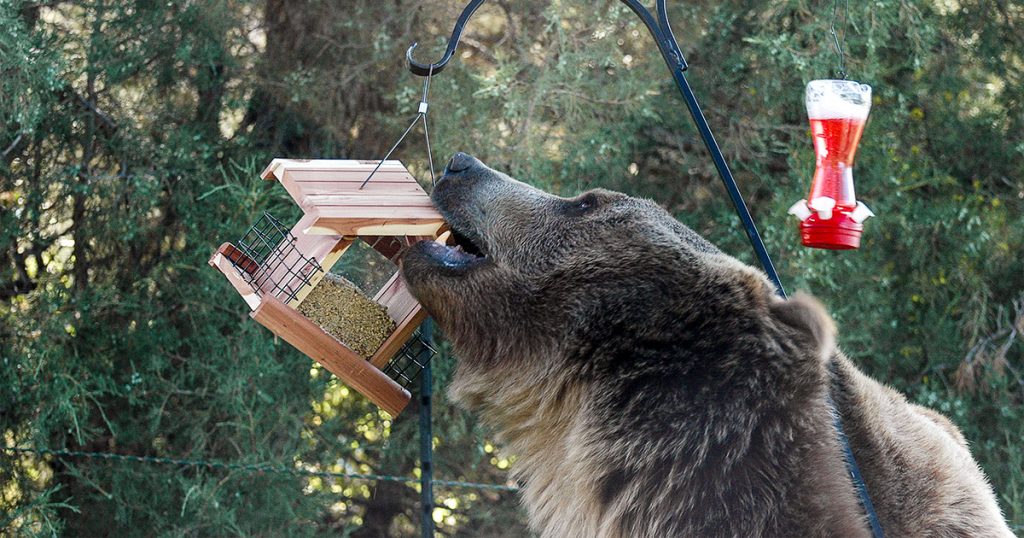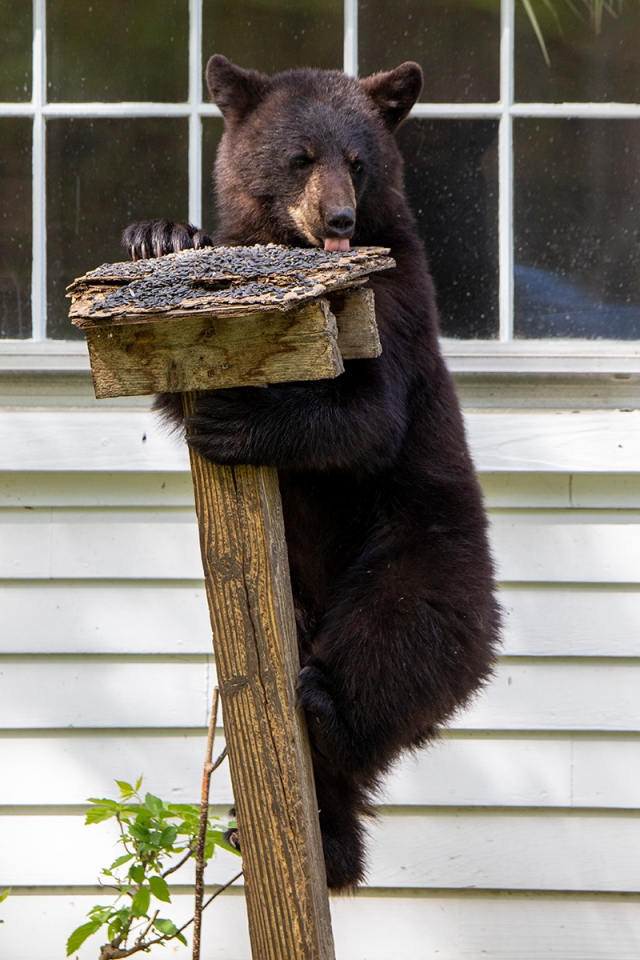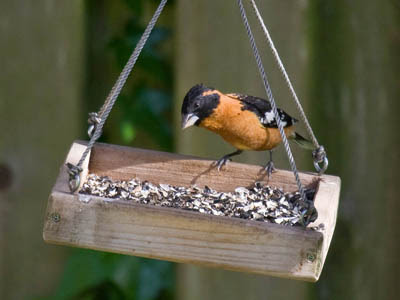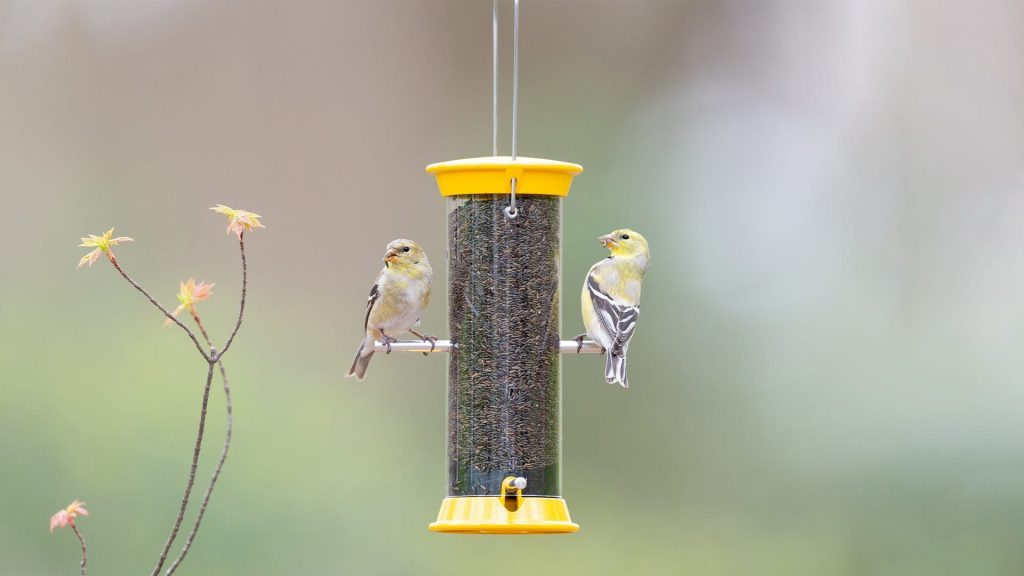During the summer, feeding birds is both possible and recommended, except in bear country. Backyard feeders attract a variety of bird species like House Finches, American Goldfinches, Rose-breasted Grosbeaks, and Mourning Doves. Feeding birds in the summer doesn’t prevent them from migrating back north in the spring. However, there are a few reasons one might choose to stop feeding birds during this time, such as living in an area with bears, the end of spring migration, or when only House Finches and House Sparrows remain. It’s also important to clean the feeders during a break from feeding. For those who wish to continue attracting birds in the summer, alternative foods like fruit or mealworms can be offered, while warm temperatures call for avoiding suet. Additionally, setting up nectar feeders in early March can attract hummingbirds. Ultimately, the decision to feed birds in summer is a matter of personal preference and circumstances.
Feeding Birds in Summer is Possible and Recommended, Except in Bear Country
Feeding birds in summer is not only possible but also recommended for bird lovers and enthusiasts. It provides an opportunity to observe and appreciate the vibrant and diverse species that visit our backyards during the warmer months. However, there is one exception to this recommendation – if you live in bear country. Feeding birds in bear country can attract these wild animals closer to human habitation, posing a risk to both bears and people. In such areas, it is best to refrain from feeding birds during the summer season.
Common Backyard Birds in Summer
During the summer, several species of birds can be commonly found visiting backyard feeders. These include House Finches, American Goldfinches, Rose-breasted Grosbeaks, and Mourning Doves. These birds add color, song, and beauty to our outdoor spaces, making bird feeding an enjoyable and rewarding activity.

Feeding Birds in Summer Does Not Prevent Migration
Contrary to popular belief, feeding birds in summer does not prevent them from migrating back north in the spring. Birds have an innate sense of navigation and an instinctual drive to follow their natural migratory patterns. The availability of food sources during the summer months does not hinder their ability to return to their breeding grounds.
Reasons to Stop Feeding Birds in Summer
While summer bird feeding is generally encouraged, there are a few reasons why one might choose to stop feeding birds during this season. These reasons include living in bear country, the end of spring migration, and when only House Finches and House Sparrows remain at feeders.
Living in bear country presents a unique challenge when it comes to bird feeding. Bears have an excellent sense of smell and are attracted to the scent of food, including bird feeders. In bear country, it is crucial to avoid attracting bears to residential areas, as it can lead to dangerous encounters and put both bears and humans at risk.
The end of spring migration is another valid reason to consider taking a break from bird feeding during the summer. By this time, most migratory birds have returned to their breeding grounds and have access to abundant natural food sources. They do not rely as heavily on feeder offerings and benefit more from the diversity of insects, fruits, and seeds available in their natural habitat.
Additionally, if only House Finches and House Sparrows remain at your feeders during the summer, it may be an indication that other bird species have moved on to seek alternative food sources. In such cases, it might be worthwhile to suspend feeding until a more diverse range of bird species returns to your area.

Recommended Cleaning of Feeders
Regular cleaning of bird feeders is a crucial step in maintaining the health and well-being of our feathered friends. During a break from feeding birds in summer, it is an excellent opportunity to thoroughly clean bird feeders to prevent the buildup of bacteria, mold, and other contaminants.
To clean bird feeders, begin by emptying and disassembling the feeder. Soak the feeder in a mixture of warm water and mild dish soap, then use a brush to scrub away any debris or residue. Rinse the feeder thoroughly with clean water and allow it to air dry completely before refilling it with fresh bird feed.
Alternative Foods for Summer Feeding
In the summer months, when natural food sources are abundant, providing alternative foods can be a refreshing change for backyard birds. Fruits such as sliced apples, oranges, and grapes can attract a variety of bird species that enjoy a sweet treat. Another option is offering mealworms, which are a high-protein snack that many birds, including robins, bluebirds, and warblers, find irresistible.
It is important to note that suet should be avoided in warm temperatures. Suet is a fatty substance that can melt or spoil quickly in high heat. To prevent the risk of spoilage and potential harm to birds, it is best to refrain from offering suet during the summer months.

Attracting Hummingbirds with Nectar Feeders
Hummingbirds are a unique and fascinating species that can bring joy and excitement to any backyard. One way to attract these tiny birds is by setting up nectar feeders in early March. Fill the feeders with a solution of four parts water to one part white granulated sugar. Avoid using honey or artificial sweeteners, as these can be harmful to hummingbirds. Hang the feeders in a shady area, away from direct sunlight, and change the nectar solution every three to five days to keep it fresh and prevent fermentation.
Individual Preference and Circumstances
Ultimately, the decision to stop feeding birds in summer is a matter of individual preference and circumstances. Some bird enthusiasts may choose to continue providing food year-round, while others may opt for seasonal feeding. It is important to consider factors such as location, bird species present, and the presence of predators like bears when making this decision.
Feeding birds in summer can be a delightful and educational experience, offering a closer connection to the natural world and a chance to contribute to the well-being of birds. By following proper feeder cleaning practices, offering alternative foods, and considering the specific circumstances of your area, you can create a safe and enjoyable environment for both birds and humans during the summer season.

Leave a Reply